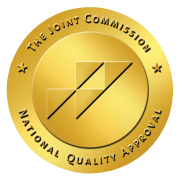Trauma-Informed Outpatient Treatment: What Is It?
Trauma doesn’t announce itself with a loudspeaker. It hides in the spaces between memories, the sudden waves of panic in grocery store aisles, and the tension in your shoulders that never quite releases. It’s both obvious and invisible, and—here’s the tricky part—it doesn’t have to be one big, dramatic event to matter. Trauma-informed treatment works with this understanding.
Trauma-informed Outpatient Treatment Approach
Trauma-informed mental health care isn’t just about sitting in a circle and sharing stories. It’s a whole philosophy of care that acknowledges the vast ripple effects of trauma on a person’s physical, emotional, and social health. Imagine trying to fix a cracked foundation without understanding the earthquake that caused it.
Trauma-informed outpatient treatment starts with recognizing this quiet chaos and gently untangling it.
How Is Trauma Informed Different From Regular Therapy?
Regular therapy often starts by asking, “What’s wrong?” Trauma-informed therapy starts with, “What happened?” It’s a subtle but profound shift.
Instead of assuming there’s a defect to fix, trauma-informed care looks at how your brain and body adapted to survive—because that’s what trauma makes us do: adapt. It understands that behaviors like hypervigilance, avoidance, or emotional numbness aren’t character flaws but biological and psychological responses to threat that have a specific origin.
The Brain Matters
Research in neuroscience tells us that trauma literally rewires the brain. The amygdala, your internal alarm system, goes into overdrive, while the prefrontal cortex—the calm, rational decision-maker—takes a back seat.
This is why trauma-informed care goes beyond thoughts and emotions. Because trauma affected your nervous system, this treatment has to affect change there. This means techniques like EMDR, somatic experiencing, and mindfulness might show up alongside more traditional talk therapy.

How Do I Know If I Need Trauma-Informed Care?
The short answer? If you’re asking, it might be worth exploring. Trauma isn’t measured in “how bad other people think it was.” It’s measured in how you experience your life. In the way you experienced something. And how you act now as a biological reaction.
Maybe you avoid certain places, conversations, or even feelings because they’re too loaded. Or you find yourself irritable, detached, or constantly waiting for the other shoe to drop. Trauma-informed care isn’t reserved for catastrophes. It’s for the ordinary, invisible wounds, too—messy breakups, bullying, neglect, or losses that left cracks instead of clean breaks.
You might need trauma-informed care if:
- You feel stuck in patterns you can’t seem to break, no matter how much willpower you muster.
- Anxiety or panic seems to show up out of nowhere, like an uninvited guest.
- Trust feels risky, even with people who’ve earned it.
- Sleep, focus, or emotional regulation feel like uphill battles.
- You want help but feel embarrassed or afraid to start.
Does Smaller Trauma Count?
There are no trauma competitions. You don’t have to qualify with a certain level of catastrophe to deserve care. Yes, there are things like natural disasters, assaults, or life-threatening events that are easier to spot for folks. But “small-T” traumas—the persistent, subtle injuries like criticism, emotional neglect, or instability—add up, too. Sometimes, those small moments are the ones that leave the deepest grooves.
What trauma-informed treatment does is take your experience seriously, no matter the scale. It acknowledges that the nervous system doesn’t judge the severity of what you have gone through. If something felt overwhelming or unsafe, it can leave a mark, and healing doesn’t depend on justifying your pain.
How Long Does Trauma-informed Therapy Usually Take?
Healing the next subway train that comes in 15 minutes. Trauma therapy doesn’t promise overnight transformations or a convenient timeline. What qualified trauma-informed therapy does promise is a process tailored to you. The pace will be determined by what your nervous system can handle.
For some, that might mean months of untangling patterns and learning to trust again. For others, it might take longer to rebuild what was broken.
Steady Before Speed
This isn’t a sprint. It’s closer to replanting a forest after a fire has taken it out—slow, intentional, and worth every effort. Along the way, you’ll develop skills to manage triggers, regulate emotions, and reshape how your brain and body interpret safety.
And eventually, the ground feels stable under your feet again.
What If I’m Scared to Talk About Trauma?
Good. That means you’re human. Trauma doesn’t sit politely in a chair and wait to be discussed. It lurks, demanding protection and secrecy. The idea of unearthing it can feel like opening a box of wounds that will literally harm you again.
But we know this. At Lido Wellness, our trauma-informed therapy doesn’t make you dive straight into the deep end. It starts by building safety and creating an environment where you slowly move into the waters that seem so unsafe—always with a way back to the harbor if you are not ready to venture any further.
Safe Harbor
You don’t have to say everything all at once. Sometimes healing starts with naming feelings or simply sitting in a room where it’s safe to not be okay. And if words fail, that’s fine, too. Trauma lives in the body as much as in the mind, which is why body-based therapies can help when talking feels impossible.
Lido Wellness Center—Trauma Informed Therapy in Newport Beach, CA
If you’re tired of carrying what feels uncarryable, you don’t have to keep doing it alone. Trauma-informed outpatient treatment isn’t about fixing you. It’s about freeing you from the weight that’s been keeping you stuck.
Whether your trauma whispers or shouts, it deserves to be heard—and so do you. Reach out and see what’s possible when healing has a map, and you have the right kind of guide. Call Lido Wellness Center today: 949-541-8466.




